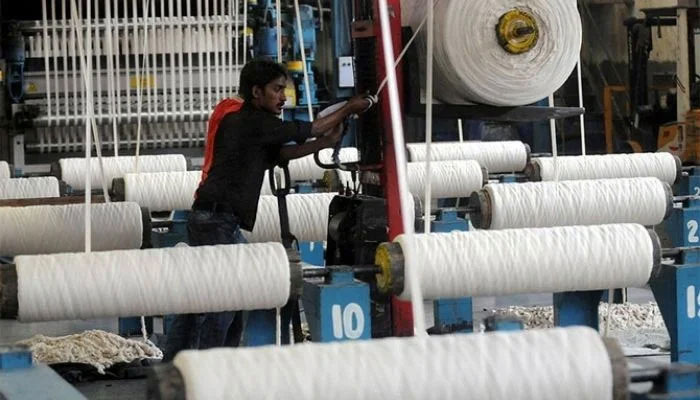Growing challenges of SMEs
LAHORE: Small and medium enterprises (SMEs) in Pakistan are facing unprecedented challenges due to the current economic climate, which has disproportionately affected them while the large manufacturing sector continues to thrive.
SMEs are estimated to contribute around 40 per cent to GDP and provide 80 per cent of non-agricultural employment, making them a crucial driver of economic activity. They play a vital role in the retail, manufacturing, services and agriculture sectors.
The 1960s and early 1980s were periods of significant SME growth in Pakistan, driven by industrial expansion, import substitution policies and government support. During this time, many family-owned businesses emerged.
However, the 1990s and early 2000s posed challenges due to political instability, inadequate infrastructure development and restrictive economic policies. More recently, the COVID-19 pandemic and ongoing political instability have also negatively impacted SMEs, resulting in slow economic growth and rising inflation.
The regulatory framework here is among the most restrictive, with limited access to financing and minimal exposure to global markets, stifling innovation within the SME sector. This issue is common in developing nations where resources such as R&D, skilled labour and digital infrastructure are lacking. Bureaucracy, corruption and a lack of investor confidence further discourage innovative efforts.
Innovation is essential for the growth of SMEs, enabling them to differentiate their products, optimize processes and explore new markets. SMEs typically lack large-scale resources, so their competitiveness relies on agility and innovation to keep pace with market trends. Through product development, digitalization and process improvements, innovation allows SMEs to adapt quickly to changing customer needs.
Pakistani entrepreneurs often start from humble beginnings and develop a deeper understanding of the struggles faced by low-income groups, which fosters a sense of social responsibility as they grow. This pattern is observed globally and in Pakistan, where many successful enterprises contribute to social welfare through charitable activities, employee well-being programmes and community development projects, recognizing the importance of uplifting society.
SME owners are typically hands-on operators and innovators. Being closer to both their workforce and customer base positions them to identify pain points and develop innovative solutions.
The success of SMEs globally depends on their owners’ ability to adapt, innovate and maintain operational discipline.SMEs generally require more focused yet less resource-intensive facilitation compared to large enterprises. This includes simplified access to credit, tax relief, technology support and training programmes.
While large enterprises often need extensive government support, SMEs primarily need assistance in easing bureaucratic hurdles, ensuring faster credit approvals and providing market access.
In Pakistan, SMEs frequently struggle to access capital due to a lack of formal financial records, limited collateral and banks’ perceived high risk. Traditional banking systems favour large enterprises with the financial infrastructure to secure loans, while SMEs are viewed as riskier investments.
When credit is available to SMEs, it often comes at much higher costs compared to the large manufacturing sector. Financial institutions charge SMEs higher interest rates due to perceived risks, lack of collateral and shorter repayment terms.
In contrast, large enterprises benefit from economies of scale and established relationships with financial institutions, granting them access to cheaper credit.The rise of small and medium enterprises has led to the production of best-selling local television brands, split air conditioners, microwave ovens and refrigerators. These enterprises belong to the light engineering sector, which is less labour-intensive than the value-added textile sector that has shown robust growth in recent years, with top exporters now focusing on value-added manufacturing.
-
 Royal Family's Approach To Deal With Andrew Finally Revealed
Royal Family's Approach To Deal With Andrew Finally Revealed -
 Super Bowl Weekend Deals Blow To 'Melania' Documentary's Box Office
Super Bowl Weekend Deals Blow To 'Melania' Documentary's Box Office -
 Meghan Markle Shares Glitzy Clips From Fifteen Percent Pledge Gala
Meghan Markle Shares Glitzy Clips From Fifteen Percent Pledge Gala -
 Melissa Jon Hart Explains Rare Reason Behind Not Revisting Old Roles
Melissa Jon Hart Explains Rare Reason Behind Not Revisting Old Roles -
 Meghan Markle Eyeing On ‘Queen’ As Ultimate Goal
Meghan Markle Eyeing On ‘Queen’ As Ultimate Goal -
 Japan Elects Takaichi As First Woman Prime Minister After Sweeping Vote
Japan Elects Takaichi As First Woman Prime Minister After Sweeping Vote -
 Kate Middleton Insists She Would Never Undermine Queen Camilla
Kate Middleton Insists She Would Never Undermine Queen Camilla -
 King Charles 'terrified' Andrew's Scandal Will End His Reign
King Charles 'terrified' Andrew's Scandal Will End His Reign -
 Winter Olympics 2026: Lindsey Vonn’s Olympic Comeback Ends In Devastating Downhill Crash
Winter Olympics 2026: Lindsey Vonn’s Olympic Comeback Ends In Devastating Downhill Crash -
 Adrien Brody Opens Up About His Football Fandom Amid '2026 Super Bowl'
Adrien Brody Opens Up About His Football Fandom Amid '2026 Super Bowl' -
 Barbra Streisand's Obsession With Cloning Revealed
Barbra Streisand's Obsession With Cloning Revealed -
 What Did Olivia Colman Tell Her Husband About Her Gender?
What Did Olivia Colman Tell Her Husband About Her Gender? -
 'We Were Deceived': Noam Chomsky's Wife Regrets Epstein Association
'We Were Deceived': Noam Chomsky's Wife Regrets Epstein Association -
 Patriots' WAGs Slam Cardi B Amid Plans For Super Bowl Party: She Is 'attention-seeker'
Patriots' WAGs Slam Cardi B Amid Plans For Super Bowl Party: She Is 'attention-seeker' -
 Martha Stewart On Surviving Rigorous Times Amid Upcoming Memoir Release
Martha Stewart On Surviving Rigorous Times Amid Upcoming Memoir Release -
 Prince Harry Seen As Crucial To Monarchy’s Future Amid Andrew, Fergie Scandal
Prince Harry Seen As Crucial To Monarchy’s Future Amid Andrew, Fergie Scandal




